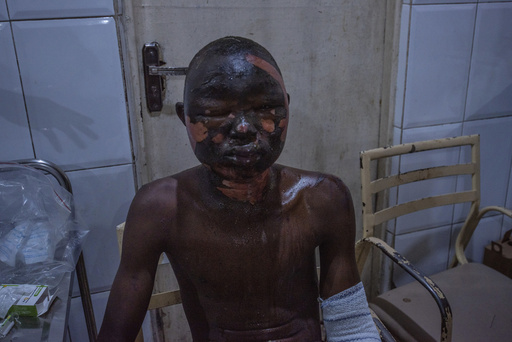ABUJA, Nigeria — Nigerian officials have revealed plans to address the failures that led to a devastating explosion on Wednesday, which claimed the lives of over 140 individuals. This incident occurred as people attempted to collect fuel from an overturned tanker in what has been described as one of the most catastrophic road events in the history of the West African nation.
The tragedy took place in Jigawa state, where most victims were tragically engulfed in flames near the tanker. Eyewitness accounts indicate that some individuals perished while attempting to aid others caught in the fire. Such incidents have become alarmingly frequent in Nigeria, a country that ranks among Africa’s leading oil producers, with fuel tankers serving as the primary means for fuel distribution across regions.
The Nigerian Federal Road Safety Corps has enacted a nationwide mandate that establishes minimum safety standards for fuel tankers before they can be permitted on public roads. This announcement was made by spokesperson Olusegun Ogungbemide.
Nigerian President Bola Tinubu expressed his dedication to conducting a “swift and comprehensive” examination of safety protocols concerning fuel transportation throughout the nation, according to a statement released from his office late Wednesday.
The recent disaster unfolded shortly after midnight when the driver of the tanker lost control of the vehicle in the remote area of Majiya. According to Dr. Haruna Mairiga, who oversees the Jigawa disaster management agency, emergency services faced delays and could only reach the site several hours after the incident.
Survivor Danladi Umar recounted that those who managed to escape the initial blaze rushed in to assist others, but the fire quickly escalated, claiming more lives. “Motorcyclists and passersby (also) died as a result, and others lost their lives while trying to save friends and family,” Umar stated.
Among the victims was Muhammad Shu’aibu Majia’s teenage son, who, in an act of bravery, attempted to rescue others. Another son is currently hospitalized with severe burn injuries. At a government hospital in Kano, where the critically injured were taken that same night, Majia joined other distressed parents, some of whom appeared to have spent the night on makeshift beds within the facility.
“It’s the will of God. They were there attempting to rescue some of the victims when they were also affected,” Majia remarked about his sons.
Across Nigeria, overturned fuel tankers are frequently seen on roadways, even during peak traffic hours. In 2020 alone, there were over 1,500 such occurrences, resulting in 535 fatalities, according to reports from the Federal Road Safety Corps.
Regrettably, many fatalities in these incidents involve individuals who try to collect fuel to use at home, a perilous practice that persists despite warnings regarding safety risks. With the country grappling with high poverty and hunger levels, many Nigerians are struggling with drastically increased fuel prices, which have more than doubled since the government eliminated costly gas subsidies last year.
According to Timothy Iwuagwu, president of the Institute of Safety Professionals of Nigeria, a significant factor contributing to these accidents and their explosive outcomes is that many petrol tankers are not constructed following international safety standards. Furthermore, most tanker drivers lack sufficient training on crucial safety measures, including avoiding overloading and complying with speed regulations, which exacerbates the frequency of such tragic events.
